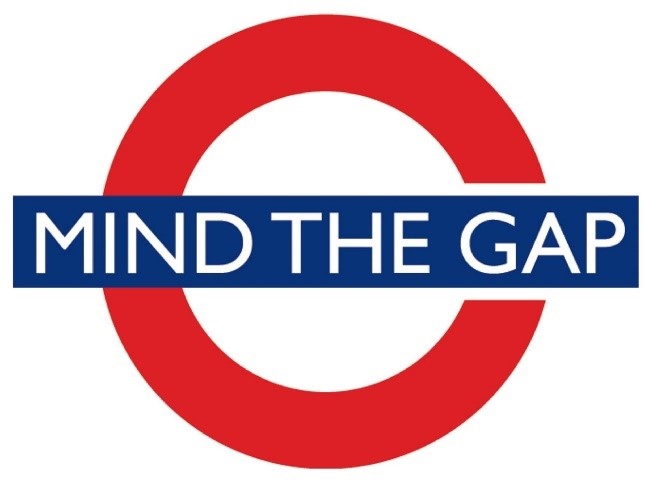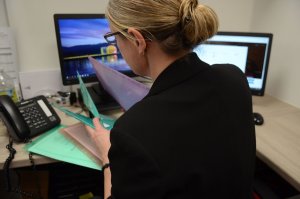Think about a time when you just couldn’t think of the word you needed during a conversation. Perhaps it was ‘on the tip of your tongue’ but you just couldn’t remember it, or maybe it was that you did not have the right word to describe a feeling or emotion. We all become frustrated when we cannot adequately express ourselves or our opinions. For most of us, this is a relatively rare occurrence, but for many children a lack of vocabulary puts up daily barriers that are difficult to overcome.
The Word Gap
Hart and Risley (2003) famously found that children from lower socio-economic households have a word gap compared to those who live in professional households. During the study, they found that between 86% and 98% of the words used by each child by the age of three was derived from their parents’ vocabularies. Crucially, they also found that the number of words a child heard varied significantly depending on the household’s socio-economic status. On average, children from families on welfare heard approximately 616 words per hour, while those from working class families heard approximately 1251. Children from professional families exceeded both, hearing approximately 2153 words per hour. This gap means that some pupils will start their school having heard 30 million fewer words than other children their age.
So, we know there is a significant word gap which we must overcome, but why is minding that gap so important? Why do we need to prioritise vocabulary?
Ludwig Wittgenstein (1933) wrote “The limits of my language are the limits of my mind. All I know is what I have words for.” Although Wittgenstein was here discussing languages, rather than vocabulary, the sentiment is apt for discussing the impact of vocabulary development. Without vocabulary, our access to knowledge is restricted and so too is our ability to discuss our opinions. Aside from the frustration that a lack of vocabulary can bring, having a word gap can negatively impact not only academic achievement, but also children’s life chances.
We sometimes forget that the entire curriculum depends on vocabulary. The National Curriculum (2014) is peppered with references to children’s vocabulary development. One of the aims of the English curriculum is focused on ensuring pupils acquire a wide vocabulary. Whilst other subjects include fewer explicit references to vocabulary, in reality, it underpins every facet of the curriculum. Without a good working vocabulary, many concepts are out of reach. Of course, vocabulary knowledge develops as new content is taught, however we must remember the word gap is pervasive. Most learning, whether disciplinary or generic, depends on a foundation of earlier vocabulary. For instance, when learning about the Stone Age, children are far more able to take on disciplinary knowledge about flint tools if they understand vocabulary such as stone, tool, design and create. For children with a word gap, these foundational terms may not be secure, and so time must be devoted to building understanding, before new content can be introduced.
The Oxford Language (2018) report ‘Why Closing the Word Gap Matters’ found that the word gap significantly impacts achievement. Teachers reported that pupils with low levels of vocabulary often:
- Had difficulty working independently.
- Had difficulty following what is going on in class.
- Achieved worse results in national assessments.
- Made slower than expected progress in English.
- Made slower than expected progress in other subjects.
Even more significantly, Charlton and Asmussen (2017) found that children with language difficulties at age 5 were:
- Four times more likely to have reading difficulties in adulthood.
- Three times as likely to suffer from mental health problems.
- Twice as likely to be unemployed in adulthood.
This picture is again backed up by the Oxford Language Report (2018), where teachers reported that pupils with lower levels of vocabulary were:
- More likely to suffer from low self-esteem.
- Less likely to stay in education and less likely to be able to find employment at the end of their school journey.
- More likely to show negative behaviour.
- More likely to have difficulty making friends.
- More likely to have worse attendance.
The 2020 Oxford Language Report Bridging the Word Gap at Transition paints an even bleaker picture. It reports that 92% of teachers believe that the COVID-19 pandemic has widened the word gap, with 94% saying that they struggled to support pupils’ vocabulary development during remote learning. There are green shoots of progress, however, with eight out of ten primary teachers describing vocabulary as having a high strategic importance currently within school.
The Department for Education has recognised the importance of vocabulary development in its guidance for schools at this crucial time. In the Guidance for Full Opening: Schools (2020) document, schools are directed to prioritise vocabulary:
“For pupils in reception, teachers should also assess and address gaps in language, early reading and mathematics, particularly ensuring children’s acquisition of phonic knowledge and extending their vocabulary.”
“For pupils in key stages 1 and 2, school leaders are expected to prioritise identifying gaps and re-establish good progress in the essentials (phonics and reading, increasing vocabulary, writing and mathematics), identifying opportunities across the curriculum so they read widely, and developing their knowledge and vocabulary.”
So, what can schools do to support this?
What can we do to prioritise vocabulary development?
It is clear that vocabulary development is fundamental to learning, yet too often, it is not prioritised within school. Sure, the meanings of unfamiliar words are discussed, perhaps they are taught prior to reading, or feature on a knowledge organiser, but to have real power, vocabulary teaching needs to be more than that. We must not only plan the explicit teaching of word meaning, but as Lemov (2016) argues, also the implicit, i.e. the strategies one uses to unpick vocabulary whilst reading. Only by prioritising both will we narrow the word gap, giving children the strategies needed to both understand individual words and apply their knowledge to previously unseen vocabulary. By minding that gap, and putting things in place to narrow and bridge it, we can make a substantial difference to not only children’s vocabulary but also their ability to access the entire curriculum. Our approach to prioritising vocabulary is fivefold. We believe the key is to see vocabulary as V.I.T.A.L. You can find out more about our approach in our previous blog here.
As a first step, ask yourself these questions to start thinking about vocabulary development in your school:
1) How do you VALUE vocabulary as a school?
The first step to becoming a school which views vocabulary as vital, is to consider how you value vocabulary in school. Does it have time on the timetable? How often is it taught? Do staff discuss vocabulary in all subjects across the curriculum? Are words and language celebrated? Do pupils get the chance to investigate and play with language? Do staff, pupils and parents understand the importance of vocabulary development? How often do pupils read for pleasure?
2) How do you IDENTIFY which vocabulary to teach?
With a huge word gap to tackle, alongside new knowledge development, identifying which vocabulary to teach can be a challenge. How do you choose which vocabulary to focus upon? How much of the vocabulary you teach is disciplinary or subject specific? How much is generic or academic? Do you know your pupils’ individual word gaps? How do you identify which gaps to prioritise? What about pupils who have bigger gaps in learning?
3) How do you TEACH vocabulary, both explicitly and implicitly?
Once you have identified the words to teach, how are taught? Are some words taught explicitly? Are strategies for vocabulary understanding taught? Do staff model how to unpick vocabulary implicitly? Are links made to existing vocabulary knowledge? Are pupils given the opportunity to investigate word families? Are pupils taught the meaning of prefixes, suffixes, root words and idioms? Click here for a free Vocabulary is VITAL resource which details the idioms every primary pupil needs to know.
4) How do you give pupils the chance to APPLY vocabulary learning?
Teaching vocabulary is an important step, but in order for pupils to really secure their vocabulary knowledge, they must be given chances to apply their learning. Research shows that pupils need multiple repeated exposures in different contexts in order for vocabulary to stick. How do pupils apply their learning in your setting? How many times do they practise and apply that vocabulary? In how many different contexts?
5) How do you know that pupils LEARN the vocabulary you teach?
Ultimately, the other steps in the Vocabulary is VITAL approach are nothing if we do not check that the vocabulary is learned. How do you assess vocabulary, formatively and summatively? What do you do with that assessment information? How do you formulate next steps in vocabulary development? What about children with more significant gaps?
Our virtual course, Vocabulary is VITAL, will delve into best practice in the teaching of vocabulary and explore how to prioritise vocabulary development throughout school. The first session, on the 11th December (1pm – 3.30pm) will discuss the Vocabulary is VITAL approach in detail, sharing strategies for whole school vocabulary development as well as practical ideas and resources to use in the classroom. The following session, on the 12th March (1pm – 3.30pm) will build upon initial learning, exploring further strategies and techniques to narrow the word gap. Delegates will be encouraged to complete a gap task between the sessions, applying the strategies discussed in their own settings.
They will also receive an extensive digital resources pack, including our full vocabulary progression. All delegates will also be invited to contribute to a vocabulary research project, with findings shared with contributing schools at the end of the academic year. For more information or to book your place, please email events@oneeducation.co.uk or visit our Training Courses page.
References:
- Department for Education (2020). Guidance for Full Opening: Schools, Crown Copyright. Law, J.,
- Charlton, J., Asmussen, K. (2017). Language as a Child Wellbeing Indicator. Early Intervention Foundation/Newcastle University.
- Hart, B. & Risley, T.R. (2003). The Early Catastrophe: The 30 Million Word Gap by Age 3, American Educator, pp.4-9.
- Lemov, D. (2016). Reading Reconsidered: A Practical Guide to Rigorous Literacy Instruction, John Wiley & Sons.
- Oxford Language Report (2020). Bridging the Word Gap at Transition, OUP.
- Oxford Language Report (2018). Why the Word Gap Matters, OUP.
- Wittgenstein, L. (1933). Tractatus Logico-Philosophicus. Harcourt.
















